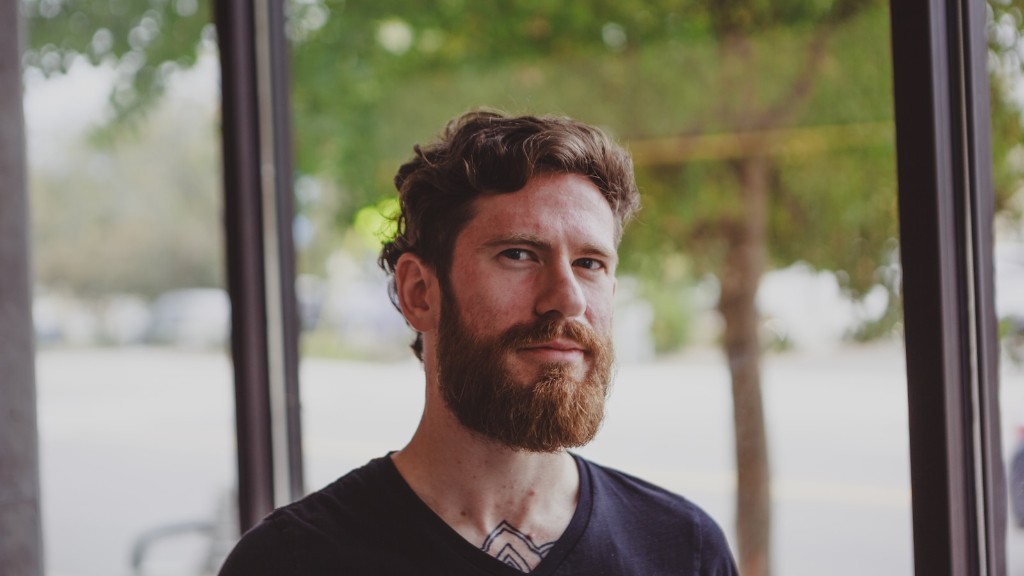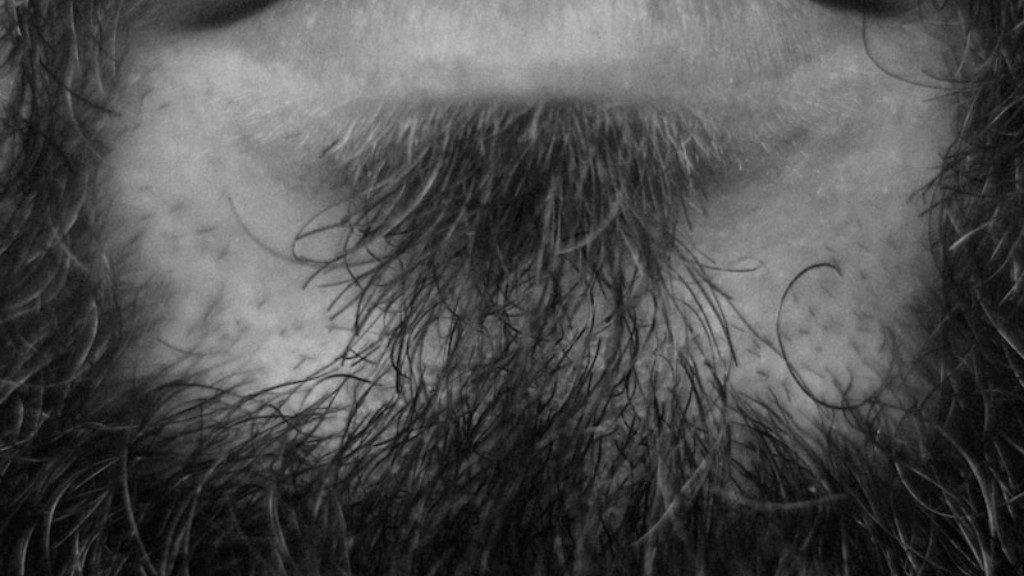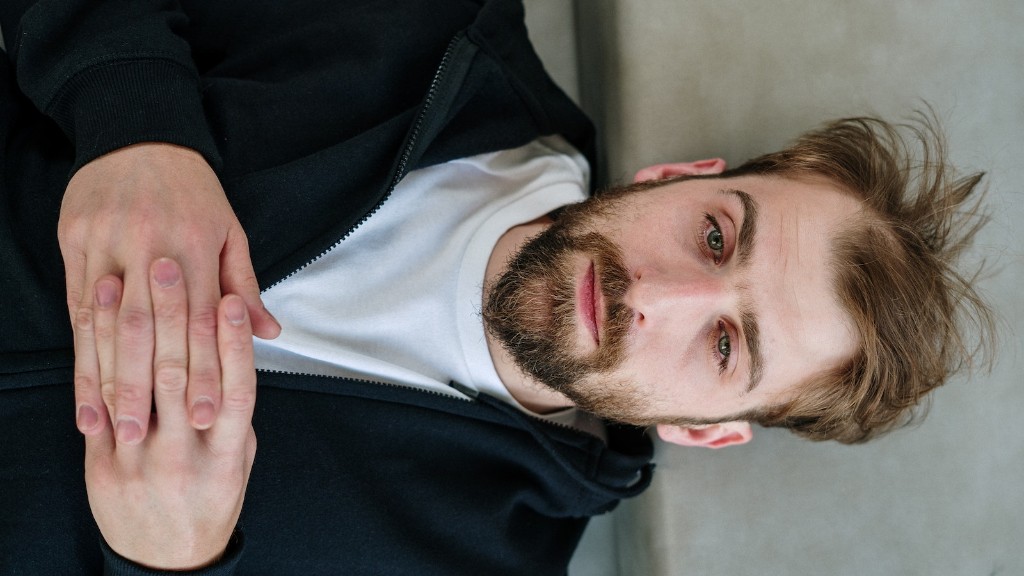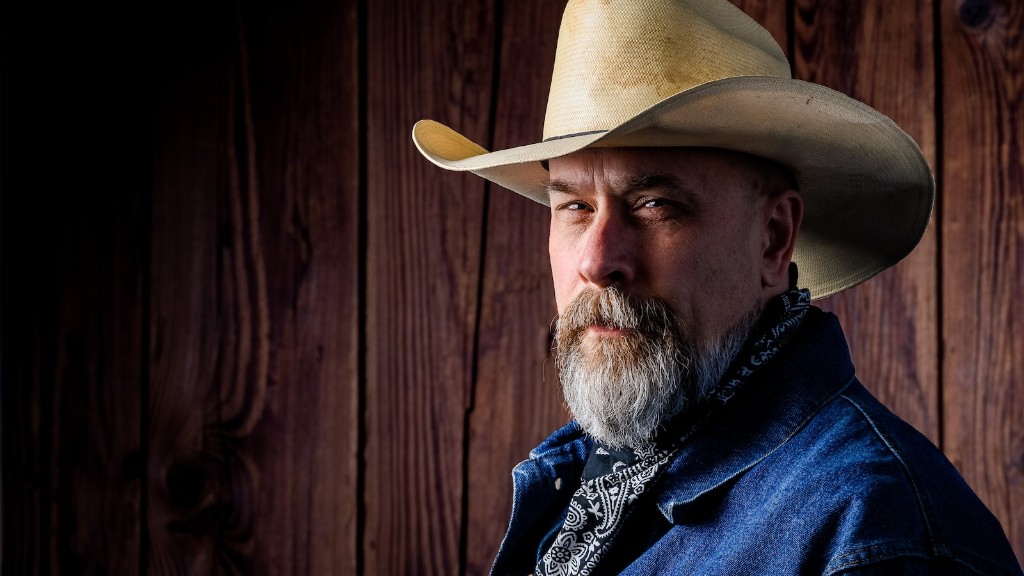There is some anecdotal evidence that biotin can help with beard growth, but there is no scientific evidence to support this claim.
There is no scientific evidence to support the claim that biotin can help beard growth.
How much biotin should I take for beard growth?
There is no definitive answer to how much biotin you should take for beard growth. The US Institute of Medicine recommends an adequate intake of 30 mcg per day for adults over 19. However, experts generally recommend taking a supplement that contains anywhere between 2 to 5 mcg per day.
If you’re looking to grow a thicker, healthier beard, then you’ll want to make sure you have adequate levels of testosterone. Testosterone is the hormone responsible for regulating and stimulating facial hair growth, so if you’re low on testosterone, you may find it difficult to grow a beard. Additionally, testosterone is responsible for the production of dihydrotestosterone (DHT), which is also a key player in facial hair growth. In most cases, higher levels of testosterone and DHT will result in faster, thicker, and better beard growth. So if you’re struggling to grow a beard, it might be worth checking your testosterone levels.
Which vitamin is best for beard growth
Biotin is an important nutrient for beard growth. It helps to increase the thickness of the beard over time. Studies have shown that biotin deficiency can reduce the growth of beard hair.
The cells treated with biotin increased testosterone production in a dose- and time-dependent manner. Biotin treatment elevated intracellular cyclic adenosine monophosphate levels via adenylate cyclase activation, followed by the activation of protein kinase A and testosterone production. This suggests that biotin plays an important role in regulating testosterone production.
Is 10000 biotin too much?
There is no evidence to suggest that taking 10,000 mcg of vitamin B12 is harmful. In fact, research suggests that even taking large doses of B12 (up to 300,000 mcg) is safe. Therefore, if you are looking to supplement your B12 intake, it is unlikely that you will experience any adverse side effects.
Most men will have a full beard by their early 20s, but some may need to wait until they hit 30 to reach full beard growth. Puberty might initiate the facial hair growing process, but how fast and thick your beard grows will depend on factors that we’ll discuss below, including genetics and hormone levels.
Is there a trick to growing a beard?
If you want to grow a beard faster, you need to start taking care of your face. Start by cleaning, moisturizing, and exfoliating properly. You should exfoliate your skin once a week, using a scrub or an exfoliant. This will help to remove all the dead skin cells and will stimulate new hair growth.
There is no one-size-fits-all answer to the question of how to grow a fuller beard. However, there are certain things that you can do to promote beard growth and make the most of what you have. A good skin care routine, for instance, is important for keeping the hair follicles healthy. Eating a nutritious diet and getting plenty of exercise will also help to encourage beard growth. Additionally, using proper beard care products and styling your beard in a way that works for you can make a big difference. Finally, if you’re trying to grow a thicker beard, it’s important to resist the urge to shave too often.
How do you fix a patchy beard
If you want to fix a patchy beard, there are a few things you can do. First, let your beard grow out for a while to see if the patchy areas fill in. If they don’t, you can try trimming your beard in a new style to make the most of the hair you have. Additionally, make sure you’re taking care of your beard hair by washing and brushing it regularly. Finally, focus on your overall health, as it can impact the health of your hair.
Those looking to grow a beard should be aware that there are two main hormones responsible for beard growth: dihydrotestosterone (DHT) and testosterone. DHT can affect your beard’s density while testosterone defines its thickness. Not everyone has the same levels of these hormones and those with lower levels may experience slower beard growth.
What food has the most biotin?
Biotin is a water soluble vitamin and is mainly found in animal-based foods such as organ meats, eggs, fish and meat. Seeds, nuts and certain vegetables such as sweet potatoes are also good sources of biotin. The best way to get your daily intake of biotin is to eat a variety of foods that contain the vitamin.
Biotin is a water soluble vitamin and is part of the vitamin B complex. It is also known as vitamin H or coenzyme R. It plays an important role in the metabolism of fats and proteins. Biotin is necessary for the growth and maintenance of healthy skin, hair and nails. It is also involved in cell growth and cell reproduction.
Biotin is found in a variety of foods, including egg yolks, nuts, seeds, legumes, whole grains and some meats and fish. It is also available as a supplement.
The recommended intake of biotin is 30 μg per day. Biotin is considered safe, with no reports of adverse effects at intakes up to 200 mg per day.
Biotin supplements have been shown to boost hair growth and stop hair loss. They may also help prevent and treat other conditions, such as brittle nails, diabetes and skin disorders.
Does biotin affect sperm
Biotin is a water soluble vitamin and is very important for numerous cellular processes including the metabolism of fats and glucose. It also plays a role in the synthesis of DNA and RNA. Biotin deficiency can lead to hair loss, skin rashes, and brittle nails.
Biotin has many benefits for reproductive health. It helps to increase the sperm motility and prolong the survival of frozen-thawed semen samples. This may have potential benefit in assisted reproductive technology field.
Biotin is a vitamin that is important for many bodily functions. Some of the benefits of biotin include supporting immune function, enhancing lipid metabolism, and boosting hair, skin, and nail health. Biotin is found in many foods, so it is easy to get enough of this vitamin through diet alone. However, some people may benefit from taking a biotin supplement, especially if they have certain health conditions that affect biotin absorption or metabolism.
What are the signs of too much biotin?
Excess biotin in the body is rare, and since biotin is a water-soluble vitamin, it is excreted in the urine when in excess. Signs and symptoms of biotin overdose may include and are not limited to insomnia, excessive thirst, and urination.
Pregnant or breastfeeding women should ask their doctor before taking biotin. The recommended dose may be different during pregnancy or while nursing. Do not give any herbal/health supplement to a child without medical advice.
Warp Up
There is no concrete evidence that biotin can help with beard growth. However, biotin is a water-soluble vitamin that is essential for the health of your hair, skin, and nails. Therefore, taking a biotin supplement may help to improve the overall health of your hair, which could in turn promote beard growth.
A daily supplement of biotin may help to encourage beard growth in some people, although more research is needed to confirm its effectiveness. It is important to speak with a doctor before taking any supplements, as they may interact with other medications or have potential side effects.





